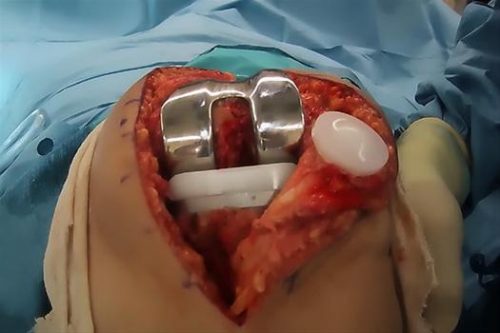Matt Yglesias asked:
Turning 35 on Wednesday — old people: What do I need to know about the future? I already have random knee pain.
— Matthew Yglesias (@mattyglesias) May 16, 2016
Thanks for asking, Matt! I’m 63 and I will happily oldsplain tell you what you need to know about your future.
First, some advice about how to think about the problem. One of the difficulties in predicting your future health is that the data come from earlier generations (like me). Unfortunately, your experience will differ from mine, in part because the health care system you will face will be different from the one that I’ve experienced. For several generations, we’ve largely unconsciously assumed that future health care will be better than current health care.
But that’s no longer clear. Our current antibiotics are failing and they are not being replaced with new ones. I’m sure you know this, but Aaron has great explainers here and here, Kevin has one here, and I have a rant here. In my piece, I quote Arjun Srinivasan, an associate director at the CDC:
For a long time, there have been newspaper stories and covers of magazines that talked about “The end of antibiotics, question mark?” Well, now I would say you can change the title to “The end of antibiotics, period.” We’re here. We’re in the post-antibiotic era… we are literally in a position of having a patient in a bed who has an infection, something that five years ago even we could have treated, but now we can’t.
We are already at a point where antibiotic-resistant bugs kill more Americans than AIDS does. Because there is uncertainty about whether this problem will be solved, the risks implied by future widespread antibiotic resistance should condition your current health care decision making.
Given that you report having random knee pain, this is relevant to you. I started experiencing pain in my hip in my early 30s. My family is disposed to osteoarthritis. But I also made a questionable set of athletic choices. I got hooked on endurance sports (cycling, distance running, triathlon) and martial arts (an acrobatic style of kung fu). I loved these sports, but I could have made smarter choices. I’m 6’2″ with the frame more like an offensive lineman than a marathoner (or Jet Li).
I logged many running miles, chronically stressing the tissue separating my femurs from my pelvis. I also injured my left hip landing an aerial kick involving 270 degrees of rotation. As a result of these traumas, by my late 50s that hip was trashed by osteoarthritis. I could not walk for long distances or without a cane.
Then I got a hip replacement. OMG was that wonderful. But here is what joint replacement surgery looks like.

These operations are spectacularly invasive and they are impossible without effective antibiotics.
Of course, if we can’t do surgeries, the disappearance of joint replacements will be just one horrible detail. Peter Lee, Scott Regenbogen, and Atul Gawande estimate that the typical American will have 9 surgeries during their life. This will change, and not for the better, without antibiotics. Everyday events will once again become occasions of terror. I was once bitten by my cat while trying to protect her from a dog. Cat bites are amazingly dangerous. Within 24 hours there was a swelling on my hand about the size of half a softball. No big deal, though. It was quickly fixed through surgical debridement and intravenous antibiotics. Otherwise, I would have lost my hand.
But you mentioned knee pain, so let’s talk about joint health. The upshot is that you have to make health decisions now with the knowledge that you may not be able to replace your joints. You can live without a joint replacement, at the cost of constant pain, with the attendant risks of mental health and substance abuse problems. Moreover, even with a cane or walker your mobility is significantly restricted, and you will discover how many buildings still do not meet the requirements of the Americans with Disabilities Act.
In light of these risks, you should think through how to minimize the chance that you will need a joint replacement. About 1.2 million of these procedures are performed a year and about 10% of men develop osteoarthritis, so your prior probability even without early knee pain was already significant. See your physician, find out what your risk of developing joint disease might be, and learn what you can do to prevent it. Keep your weight down and engage in regular exercise. But don’t take up a sport that stresses the joints of big men.
Finally, keep covering the problem of antibiotic resistance at Vox. Antibiotic resistance is in the class of problems that includes global warming and nuclear holocaust. They are all rooted in the foundations of how things work rather than in the easily fixable details. Any solution faces difficult coordination problems. Keep writing because people don’t get it yet; but they need to if we are going to get through this.

